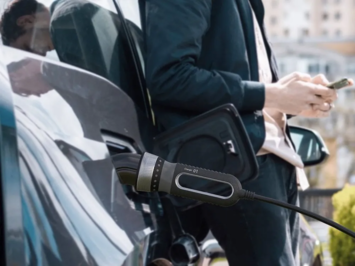
“A foolish consistency is the hobgoblin of little minds,” wrote the American poet Ralph Waldo Emerson. This may prove no problem to the West’s climate-obsessed elites, who rail about the coming apocalypse, even while undermining the production of the very resources that would be essential if they are to have any chance to reach their cherished “net zero” utopia.
Although North America, and most particularly Canada, possesses many of the critical resources — lithium, copper, graphite, nickel, cobalt and rare earths — necessary to build solar panels and electric vehicle (EV) batteries, green lobbyists are fighting even modest plans for new mines.
In the United States, there’s only one operational lithium mine and one for rare earth metals. New projects, including one to tap the enormous lithium deposits in Maine and Nevada, face opposition from both the Biden administration and progressive states, whose governments ironically created the demand in the first place.
This refusal to increase the production of critical minerals, along with ever-more-stringent government mandates, has increased battery prices, with the cost of the materials needed to produce lithium-ion batteries rising threefold last year compared to 2021.
We appear to be reluctant to do the dirty work necessary for clean energy and an electrified transportation network. Instead, North America, despite its resources, now relies largely on developing countries, and China, for these critical minerals.
China now produces twice as many EVs as the U.S. and the European Union combined. Its leading EV maker, BYD, is now the world’s largest. Meanwhile, its battery-production capacity is projected to be over four times that of the United States by the end of the decade. China also exercises effective control of many requisite rare earth minerals needed to produce them.
Ironically, China produces these goods in ways that should horrify green activists. Yet the country gets kind words and advice from Prime Minister Justin Trudeau’s “net zero” acolyte, Environment Minister Steven Guilbeault.
Unlike in North America and Europe, China’s drive for EV supremacy is not hampered much by environmental concerns. Western leaders endlessly virtue-signal, but the Middle Kingdom employs reliable fossil fuels — the country is on a coal plant building spree and emits more greenhouse gasses than all developed countries put together — to forge its “green” industries, while its western competitors struggle with the high cost and unreliability associated with wind and solar.
Restrictions on the mining of uranium, which is critical to nuclear power, a source of emissions-free round-the-clock energy, could prove even more damaging. According to analyst Robert Bryce, America, which basically invented the industry, has over the past four decades or so, slid from being “the world’s biggest exporter of nuclear fuel to its biggest importer.” This leaves the U.S. with a landscape dominated by a roguish Russia, which controls 40 per cent of total uranium conversion infrastructure and nearly half the total uranium enrichment capacity in the world.
Read the rest of this piece at National Post.
Joel Kotkin is the author of The Coming of Neo-Feudalism: A Warning to the Global Middle Class. He is the Roger Hobbs Presidential Fellow in Urban Futures at Chapman University and Executive Director for Urban Reform Institute. Learn more at joelkotkin.com and follow him on Twitter @joelkotkin.
Photo credit: Digital One.












